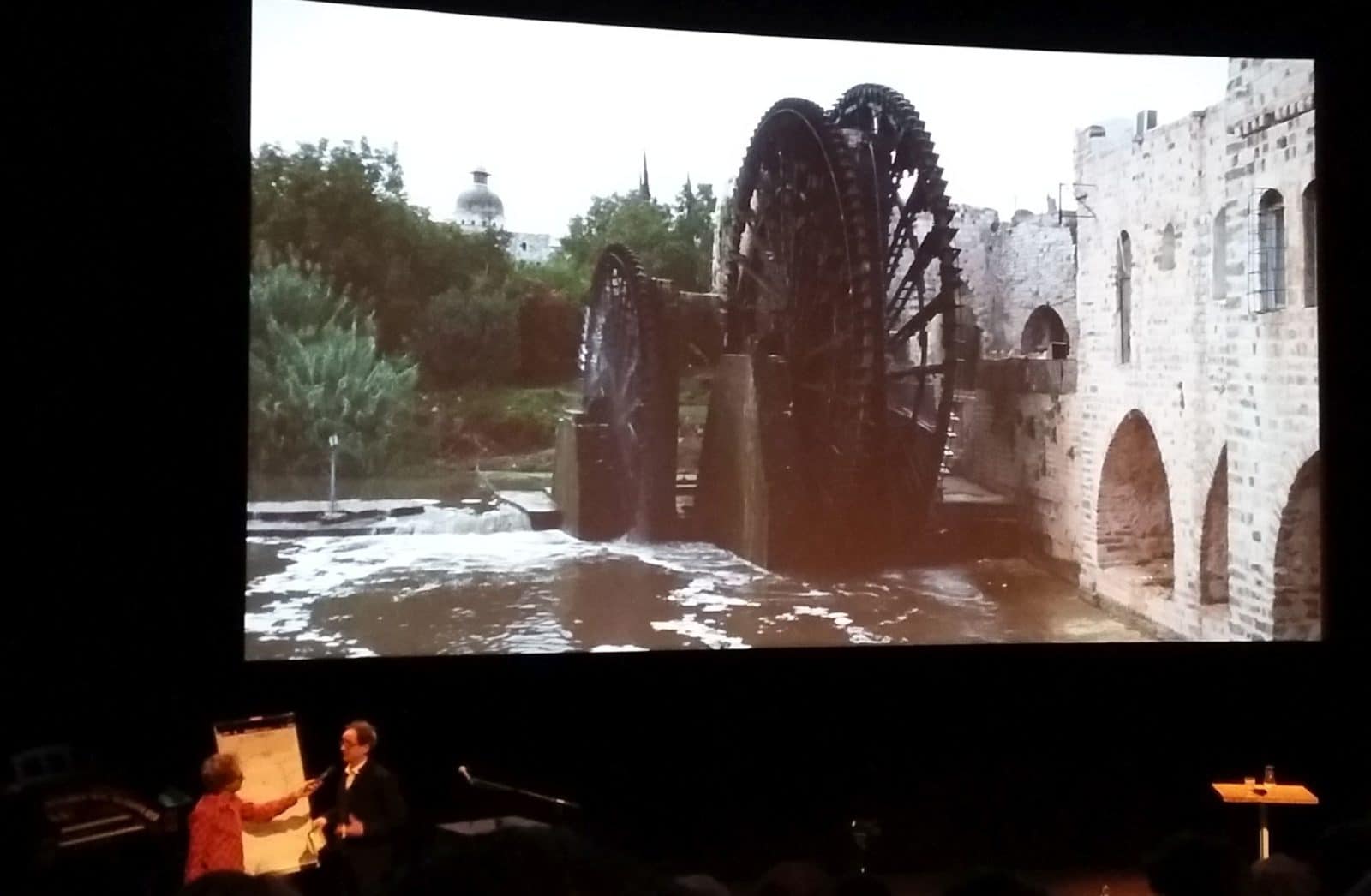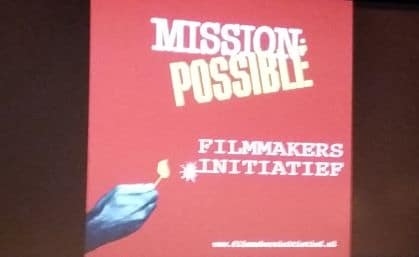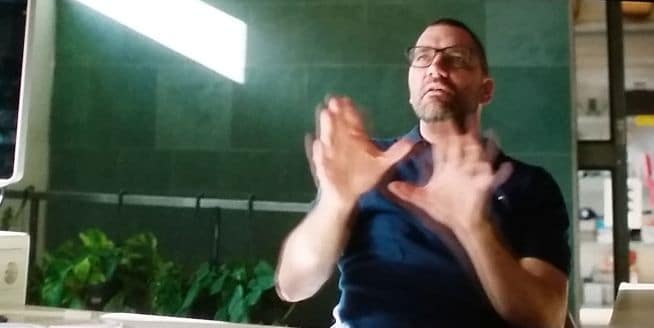Wednesday morning in Eye's packed main auditorium. This is not the first time that concerns about the Dutch feature film are the subject of conversation somewhere. What is new, however, is that at this Filmmakers' Symposium Where do we set the bar for once, only the makers themselves will have a say. And that, it was agreed, this time it should (almost) not be about money. But about how the wheel of frustration - wonderful find by Danish guest Rumle Hammerich - should get moving. Minister of OCW Ingrid van Engelshoven is also there. She interrupted her holiday for it.
The filmmakers' survey
It 'Filmmakers' initiative 2018' conducted a survey among directors, screenwriters and actors to gauge how filmmakers themselves think about content and quality of Dutch film. Yes, actors are emphatically included as well. In a nutshell, the result is: Dutch filmmakers generally find Dutch feature films mediocre. Internationally, Dutch feature films lag behind. Of those surveyed, 65% say they cannot sufficiently implement their own ideas in the current Dutch film climate. Over half call artistic freedom limited.
Dutch documentaries come out better. Of these, the majority of respondents find the level good. Drama series are in between.
Interestingly, Flemish filmmakers who were asked the same questions were significantly more positive and confident. "We just do our thing."
More guts needed
As mentioned, these Dutch concerns have been around for some time. Often it then focuses on the plummeting market share. Some five years ago over 20%, the last three years a dismal 12%. Or accusations are pointed at the funds with the conclusion: there needs to be more money. Such issues are certainly at play now too. But more so, you can see the Filmmakers Initiative as a kind of follow-up to the Burning Calf. Under that banner, the Netherlands Film Festival 2017 urged makers to be more daring and committed.
Gijs Scholten van Aschat, one of the initiators of survey and symposium, compares the film sector to the other arts in Eye. When he once had to tell a foreign company something about Dutch art and culture, he could effortlessly elaborate with pride about our theatre and music world. But when it came to film, he stuck somewhat begrudgingly to Alex van Warmerdam, Brimstone and Paul Verhoeven.
In cinema, he sees a big gap yawning between formulaic films, preferably with the word 'heart' in the title, and arthouse films. A few of these manage to attract attention at foreign festivals, but it bears no relation to the success of, say, Denmark and Belgium. The Filmmakers Initiative 2018 wants to look into cause and effect, and discuss findings and vision with the industry. Without directly assigning blame or claiming money as a panacea.
Trust
The question is: how can we do better, how do we put Dutch film back on the map internationally. Now there is a lot of noise between the devisers and makers on one side, and the final result - the film - on the other.
Freedom, less fear, trust, communication - these are words that come up often at the symposium. An artist does not benefit from rules or bureaucracy. What is refreshing is that people seem willing to reach out to their own hearts as well. Do we detect the beginning of a new momentum here?
Heart cries from the makers
The discussion of the survey results is accompanied by an appealing anthology from the many heartfelt cries added by those surveyed. "It's all the same boring sameness." "In the Dutch feature film, I don't recognise the creator." "Dutch film lacks guts, individuality." "The enthusiasm, the expressiveness has to come back. A revolution is needed." Well, I would say, bring on the Dutch nouvelle vague.
Another states, "It runs over too many disks, too many content compromises, too few funding opportunities especially also in development." By extension, "Content-wise, the Film Fund has too much of a voice, not only through consultants, but also because it focuses on producers."
Or: "Den Skyldige [multiple award-winning Danish thriller set in one office location, LB] probably wouldn't have got through to the fund." And also, "I spent an entire summer auditioning for films that were all about a woman in her 30s who didn't know whether to choose between career or children."
Theo Maassen plays it for
It is just a small sample that already indicates the complexity of the issue. Which is then succinctly and evocatively summarised in a brilliant satirical film. In it, Theo Maassen plays a filmmaker who passionately presents his film plan. The good listener recognises here the plot of Golden Palm winner The Square. Then an adviser (also played by Maassen) defuses the exciting idea with well-meaning suggestions.
Filmmakers in the room and on stage contributed examples from their own experience. Morgan Knibbe was able to share his equally original and moving (and highly acclaimed) refugee documentary Those Who Feel the Fire Burning realise in relative freedom thanks to a so-called Wildcard. But in subsequent plans, he encountered a lot of misunderstanding from producers and funds.
Screenwriter and director Ger Poppelaars recalls a script for which he received praise abroad, but which he failed to get produced in the Netherlands.
Intiative group member Maarten Treurniet argues that it is important to get feedback or criticism from someone who is genuinely interested. Someone who wants to know what moves you and not put other interests first. Engage in conversation together, because conveying passion on paper is always difficult. "But there is only one really responsible, and that is yourself," he says.
How it did succeed in Denmark
Denmark is often held up as a shining example. There, everything is said to be much better regulated and creativity flourishes. But Danish filmmaker Rumle Hammerich reminds us that it has not always been this way. 25 years ago, Danish film was in great crisis. Audiences did not want to see Danish films and everyone involved complained and felt frustrated. The big wheel of Danish film stood still.

Hammerich illustrates this very nicely with a photograph he took on one of his travels. We see a large waterwheel that is meant to lift water to irrigate fields. But by itself it cannot get moving. For that, it needs a smaller wheel to drive the big one.
It was the same in Denmark. It was only when a few wacky filmmakers stood up, including Lars von Trier, who broke the rules and dared to take risks, that things got moving. Nice detail is that the Danish Film Institute initially saw nothing in the Dogma movement, which later became famous. With TV money, it got off the ground anyway. In other words: push on, look for other ways, don't be put off.
Set the bar high
How to move forward? Initiator Arno Dierickx points out a few things. He urges his colleagues to set the bar high. "And in talks with the sector, we need to position ourselves more confidently," he argues. On a positive note, the Film Fund is keen to listen to the Filmmakers Initiative's proposals.
In not too long, the term of the Film Fund director will expire. I enquire from a member of the initiative group whether they will be lobbying for succession. Will probably happen. Initiative group member Maarten Treurniet had noted earlier that an artistic director is needed. Not cultural management.
In his imagination, Diericks sees the Netherlands blossoming as a country with authentic creators telling stories about the times we live in and the future. We need to come up with bold plans, engage in conversation, look each other in the eye. As authors, we have a duty to discover our own language. We must dare to be vulnerable and at the same time fearless. There are no guarantees, but there is no alternative. "Let yourself be known. Let us see what awaits us."
The survey was distributed to members of the Dutch Directors Guild, the Screenwriters Network and the actors' interest group ACT. There were 292 respondents.
The complete results of the survey and a comprehensive anthology of responses from filmmakers can be found at www.filmmakersinitiatief.nl


